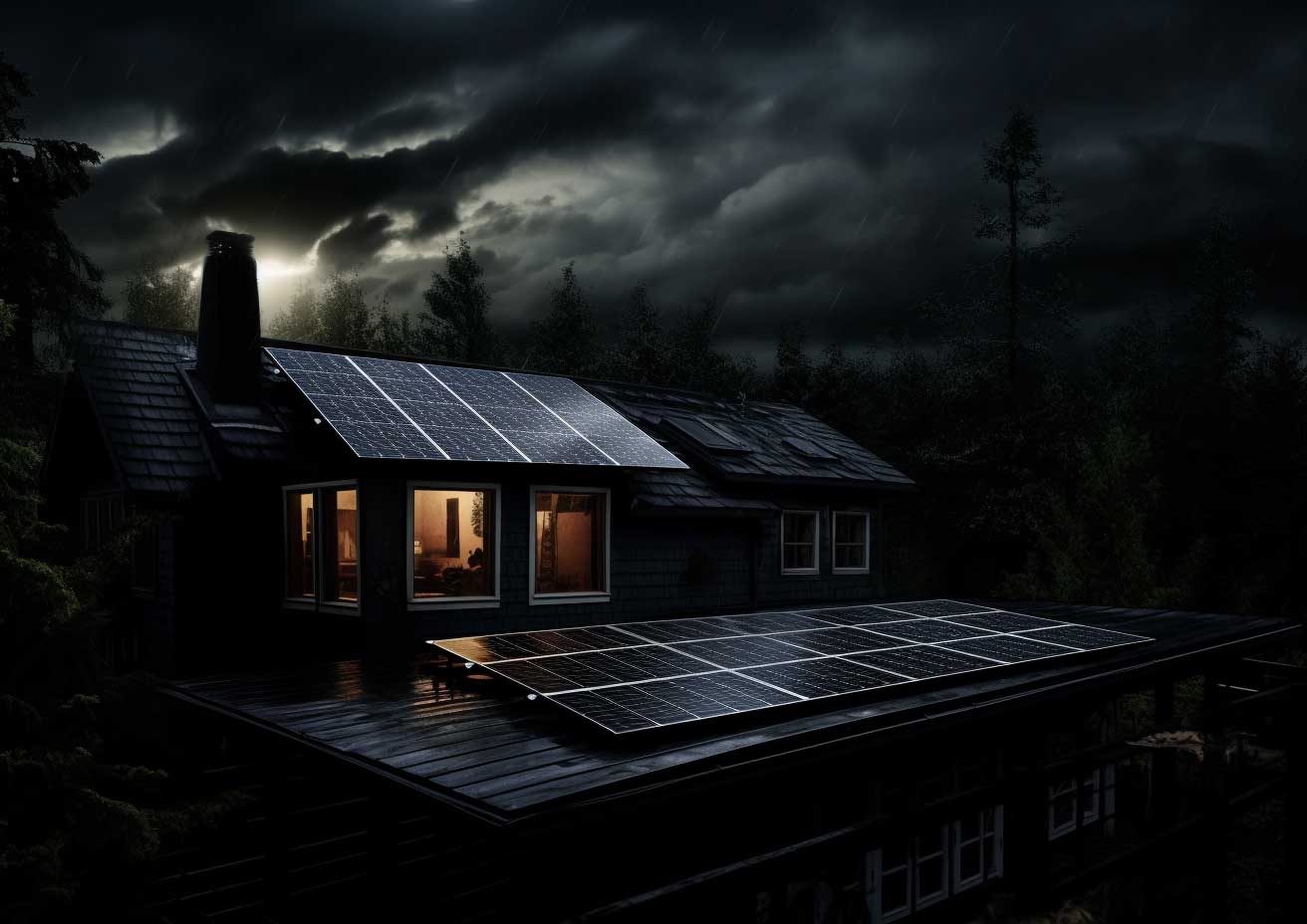Humans have harnessed solar energy, radiant light, and sun heat for millennia through evolving technologies. These modern solutions, such as photovoltaic cells and solar-thermal power stations, allow us to convert this plentiful natural resource into clean, efficient, and increasingly cost-effective electricity.
Discussing solar energy and its advantages is crucial in our contemporary environmental and energy challenges. Climate change, escalating emissions, increasing energy costs, and a rapidly growing global population necessitate sustainable and renewable energy sources. Solar energy presents a solution with its potential for reducing greenhouse gas emissions, enabling energy independence, fostering economic development, and leading us toward a low-carbon future.
What is Solar Energy?
At its most simple definition, solar energy is energy from the sun. This includes two primary types: light and heat. Solar energy is generated through fusion in the sun’s core, where hydrogen atoms combine to form helium, releasing an immense quantity of light and heat energy. This energy travels to the Earth as sunlight, from where it can be captured and converted into usable forms of energy.
Several technologies allow us to harness solar energy effectively:
- Photovoltaic (PV) Systems: The most common method of harnessing solar energy, Photovoltaic systems involve solar cells that convert sunlight directly into electricity through the photovoltaic effect. When sunlight strikes the solar cell, it excites the electrons, enabling them to flow and create electric current. These solar cells are typically combined to form solar panels, which are then utilized in residential, commercial, and industrial applications to generate electricity.
- Solar Thermal Energy: Instead of converting sunlight directly into electricity, solar thermal technology captures the sun’s heat. This heat can be used for heating purposes in homes and businesses or concentrated on generating high-temperature heat for industrial purposes. High temperatures can also create steam to drive a turbine, which produces electricity in a process known as Concentrated Solar Power.
- Passive Solar Energy: This solar technology uses the sun’s natural light and heat without mechanical systems or solar panels. It incorporates design features in a building, such as strategic placement of windows, selection of materials with favorable thermal mass or light dispersing properties, and designing spaces that naturally circulate air, enhancing energy efficiency.
These solar harnessing technologies allow us to convert abundant sunlight into sustainable power, offering a renewable and environmentally friendly alternative to fossil fuel-based energy generation methods.
Advantages of Solar Energy
Harnessing the sun’s power gives us a pollution-free, infinitely renewable energy source offering significant economic and social advantages. From reducing greenhouse gas emissions and conserving water resources to minimizing energy costs and creating job opportunities, solar energy’s benefits reflect its potential to underpin a sustainable future for our planet.
Environmental Advantages
The environmental benefits of utilizing solar energy are significant:
- Reduction of Greenhouse Gases: Solar power generation results in minimal greenhouse gas emissions. In contrast to fossil fuel-based energy production, which releases significant amounts of carbon dioxide and other harmful gases, solar power generation emits virtually none. According to the U.S. Energy Information Administration, more than 1.5 billion metric tons of CO2 was emitted from coal consumption for electricity and heat in 2022 alone. By adopting solar energy, we can significantly reduce these emissions, mitigating the severity of climate change.
- Inexhaustible Source of Energy: The sun is a near-infinite energy source, outstripping any conceivable energy demands.
- Reduced Water Usage: Solar power generation requires significantly less water than nuclear or fossil fuel power plants, reducing strain on water resources.
- Low Noise Pollution: Solar panels operate silently, leading to less noise pollution—a significant benefit over traditional generators, especially for installations in residential areas.
Economic Advantages
Solar energy has several economic advantages:
- Decreased Energy Bills: Solar panels can significantly reduce electricity bills. According to Energy Sage, the average American household could save around $20,000 to $96,000 in energy costs by switching to solar energy.
- Energy Independence: Solar energy can free businesses and homeowners from dependence on fluctuating fuel and energy prices, leading to greater energy security.
- Job Creation: The solar industry creates various job opportunities in installation, manufacturing, sales, and more. According to The Solar Foundation’s Solar Jobs Census, as of 2019, the industry employed nearly 250,000 Americans.
- Government Incentives and Rebates: Governments worldwide offer incentives to encourage solar adoption, such as tax rebates and feed-in tariffs, making solar panels more accessible and affordable.
Social Advantages
Finally, solar energy can provide considerable social benefits:
- Improving Grid Security: Decentralized solar energy systems enhance power supply diversity and reduce strain during peak demand times, contributing to grid stability.
- Access To Energy In Remote Locations: Solar energy is an excellent solution for off-grid, remote areas where conventional electricity is impractical or expensive to connect. It provides an invaluable resource for community facilities, homes, and emergency services in these areas.
- Public Health Benefits: Swapping fossil fuel power for solar results in fewer air pollutants, reducing health risks linked to air pollution—such as heart attacks, lung cancer, and stroke—and improving public health.
Frequently Asked Questions
What are the advantages of using solar power?
Solar energy offers numerous advantages, including reducing greenhouse gases, using an inexhaustible energy source, reducing water usage compared to traditional energy sources, and decreasing noise pollution. Economically, solar energy can lower energy bills, provide energy independence, contribute to job creation, and is often supported by government incentives and rebates. Socially, it can improve grid stability, offer access to energy in remote locations, and benefit public health through cleaner air and water.
What are the disadvantages of using solar energy?
While solar energy has many benefits, it also has a few drawbacks. These include the initial high cost of installation, variability in power production due to weather conditions and day/night cycles requiring energy storage systems or alternative power sources, large land requirements for large-scale solar farms, and potential environmental concerns associated with the manufacturing and disposal of solar panels.
Does solar energy reduce my carbon footprint?
Yes, solar energy significantly reduces carbon footprint as it emits negligible greenhouse gases compared to traditional fossil fuel-based power generation.
Can solar energy lead to savings on my electricity bill?
Absolutely. While there is an upfront cost for installing a solar panel system, the long-term savings on your energy bill can be significant.
Is solar energy a reliable power source?
Solar energy is a reliable power source during daylight hours, especially in areas with regular sun exposure. However, the variability of solar energy production requires integration with energy storage systems or other types of power generation for 24/7 power supply.
How does solar energy help in job creation?
The solar industry creates various jobs, including roles in solar panel installation, maintenance, manufacturing, sales, and research and development. As per The Solar Foundation’s Solar Jobs Census, the industry employed nearly 250,000 Americans as of 2019.
Can I use solar energy if I live in a remote area?
Yes, solar energy is an excellent solution for off-grid, remote areas. Installing solar panels is often more accessible and cost-effective than extending power lines to remote locations.




